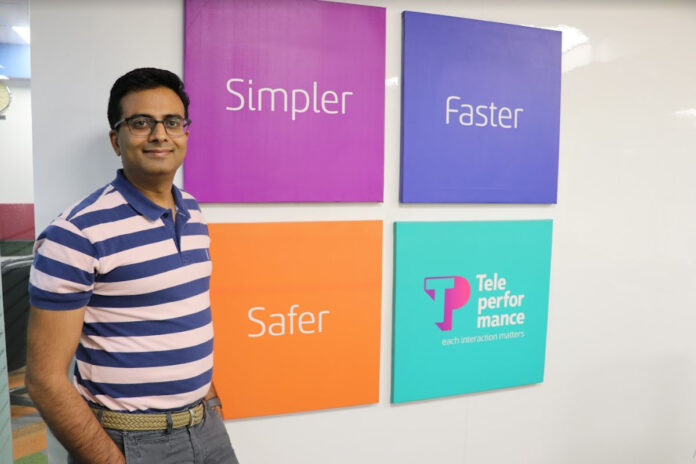Anish Mukker, CEO at Teleperformance India, delves into some of the key trends set to define the technology and CX industry in 2023. To strengthen the impact of technological innovation, businesses continue to place a strong focus on their people.
As technology continues to reinvent itself at breakneck speed, many businesses have jumped on the automation train, as they aim to increase productivity and efficiency within their company and provide simpler, faster, safer, and smarter experiences for their customers. The importance of innovative technology to businesses will be pivotal in 2023 as global brands seek to stay afloat amid the economic turbulence. Leveraging technology will be key, and given the pace of digital innovation, new disruptive technologies will continue to emerge to further drive productivity and creativity.
Now more than ever, global businesses must prioritise leveraging a human touch that help them accelerate their technology deployment, thereby providing a balanced ‘High-Tech’ and ‘High-Touch’ environment.
AI, Everywhere
The Artificial Intelligence industry has been on a swift upwards trajectory over the past few years, especially in the aftermath of the pandemic, and it is predicted to reach a worth of $42.4 billion in 2023. There is no doubt that AI will be prevalent in all aspects of the business value chain in the years to come.
AI is already becoming increasingly accurate at predicting customer sentiment or buyer preferences, thereby further augmenting digital customer experience and making automated conversations more intelligent. Powering what we call Teleperformance’s TAP framework (Technology, Analytics, Process Excellence), AI can provide businesses with crucial data which can be utilised to back key decisions and prompt major moves. With this in mind, it is clear that AI will assist people to be more productive.
As AI becomes increasingly complex companies will need to upskill employees to realise the full potential of it. Therefore, businesses will be required to invest more in staff training, which in turn, will improve employee lifecycle. In fact, the demand for jobs which require AI skills is estimated to rise by 40% over the next five years. Upskilling the workforce on future-of-work skills should be placed as a priority amongst businesses.
Entering the Metaverse
The metaverse is no longer a futuristic fantasy, and as we accelerate into the future, it will become even more of a reality. Continuing to captivate people around the world, the metaverse will certainly come to dominate the tech space this year. From socialising, to shopping, to working – the metaverse is being embraced with open arms by many of the major tech firms. Enabling personalisation, interactivity, connection, and constant innovation; metaverse spending is expected to reach trillions of dollars by 2030.
In the corporate world, the metaverse can function as the medium to meet global clients, train staff, and drive engagements through gamification despite physical distance.
While being a highly transformative technological innovation, the metaverse enables and solidifies human connections, bringing them closer in a virtual environment. Training and onboarding new employees through metaverse can allow global businesses to tap into a wider talent pool, also offering greater flexibility with working models.
Leveraging the Cloud
The ‘work-from-anywhere’ revolution has swept the globe, as businesses are now lenient of flexible working conditions and understand the need to have a work from home option. With this drive, businesses are trying to crack the code on how to provide an effective and interconnected WFH solution.
Cloud technology enables remote teams to work seamlessly and consistently to deliver set tasks. With Cloud WFH solutions, clients and customers can rely on home-based customer service experts offering the highest level of data security, best-in-class cloud infrastructure, and best talent.
The Cloud boosts DEI (Diversity, Equity and Inclusion) efforts, as it unlocks access to not just a larger talent pool, but also creates equal opportunities for people from all walks of life. Irrespective of their gender, location, caste, colour and preferences, communities such as new mothers, veterans, and differently-abled people, are empowered to join the workforce. In fact, a recent Gartner report revealed that 75% of Boards anticipate an increase in DEI initiatives over the next two years. Representation matters, and this is something that businesses are now prioritising.
The Way Forward
Despite the acceleration in the technology space, and the need for businesses to embrace it, they must also ensure they maintain the most important aspect of customer experience – the human touch. The key to any successful global business of the future is to show empathy, and strive to be a force of good. Through harnessing these qualities, a new benchmark will be set for all organizations, and regardless of the new technologies which continue to emerge, the human touch will subsist. Because, each interaction matters.


